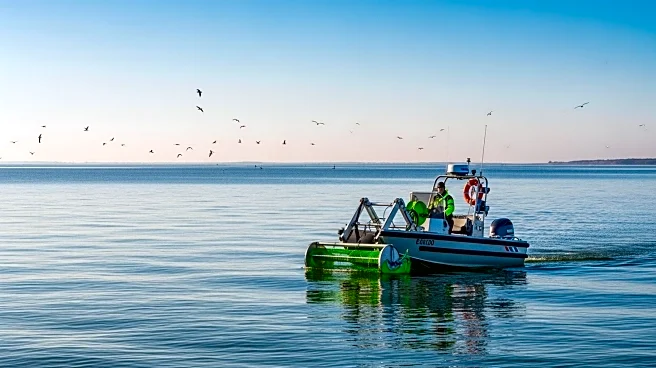What is the story about?
What's Happening?
A large mass of green algae has been removed from Budle Bay in Northumberland as part of efforts to protect local wildlife. The algae blooms threatened seagrass habitats, which are crucial for migratory birds and carbon capture. Researchers from the Life Wader project, including professionals from Natural England and Newcastle University, are investigating the causes of the blooms and exploring ways to repurpose the algae for various uses.
Why It's Important?
The removal of algae is vital for preserving the ecological balance in Budle Bay, a key habitat for wildlife. Seagrass plays a significant role in carbon sequestration and provides essential resources for migratory birds. Addressing the algae blooms helps maintain these ecological functions and supports biodiversity conservation efforts.
What's Next?
The bay will be monitored to assess the impact of algae removal on the environment. Researchers are also exploring the potential for annual algae harvesting and repurposing it for products like fertilizers and energy. These efforts could lead to sustainable management practices that benefit both the environment and local communities.















